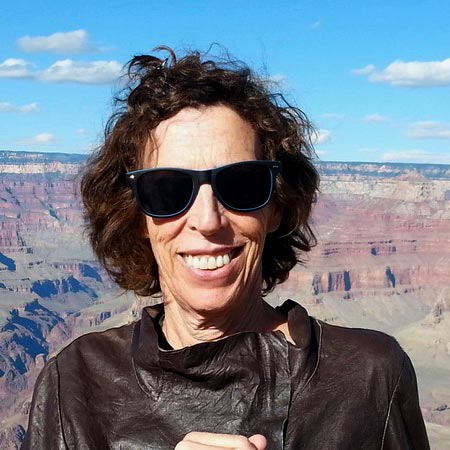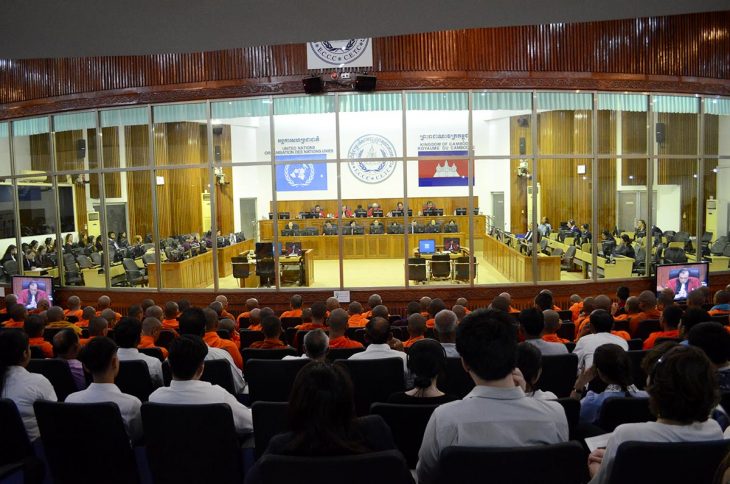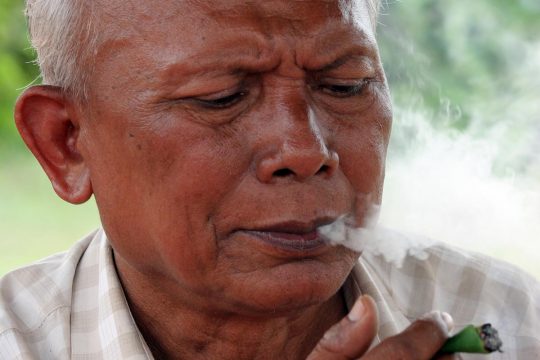Three cases that have been plodding for 13 years through the Extraordinary Chambers in The Courts of Cambodia (ECCC)—a court established in 2007 to try senior leaders and those most responsible for atrocity crimes of the Khmer Rouge regime during the late 70’s—were recently “terminated” by the court’s highest chamber. In finally putting an end to the travesty these cases represented, the Supreme Court Chamber condemned lower judicial rulings for failing to respect the basic obligation that judges issue rational decisions and provide legal certainty to parties.
The ECCC is a unique hybrid court established by agreement between the United Nations and the Government of Cambodia. It is organized with national (Cambodian) and international officials operating as “co-prosecutors,” “co-investigating judges,” “co-defense lawyers”, and with a majority of national judges on three judicial chambers. A supermajority voting requirement – which demands that at least one international judge joins the nationals to create a binding decision – limits full control of the court by national judges.
Evidencing the court’s disfunction
The cases (together known as the 003/004 cases), included charges against Meas Muth, Ao An and Yim Tith—three persons who, although not part of the uppermost leadership of the Khmer Rouge, were nonetheless alleged to be responsible for hundreds of thousands of deaths, and untold devastation and suffering. In 2009 the cases were submitted to the co-investigating judges for judicial investigation and determination whether indictments for trial were appropriate. Following the announcement of the investigations, the national prosecutor, national judges, and representatives of the Government of Cambodia proclaimed that the cases were not in the national interest and that no trials other than the court’s first two cases – that included a total of 5 accused – could proceed. The national prosecutors and judges maintained this stance for over thirteen years in the face of factual and legal findings of their international counterparts supporting prosecution of the atrocity crimes alleged.
In 2018 and 2019 the two co-investigating judges took the unusual step of simultaneously issuing contradictory closing orders. The international judge issued full indictments for each accused that included charges of crimes against humanity, war crimes, genocide. The national judge issued orders dismissing each case. In issuing the opposing orders the judges intentionally ignored a clear process in the court’s rules intended to resolve such disputes and prevent a deadlock of contradictory orders. The bizarre situation was appealed to the Pre-Trial Chamber which ruled the failure to follow the dispute process and the issuance of contradictory orders was unlawful and violated the core framework of the ECCC. Unfortunately, the Pre-Trial Chamber judges were, again, unable to agree what would happen next to the cases. The international judges stated that the cases should proceed to trial. The national judges wanted the cases dismissed. A myriad of procedural attempts to unlock the standoffs were successful only in evidencing the court’s disfunction. During this melee, the national judges of the Trial Chamber offered their analysis that “there will be no trial of [the accused] Ao An now or in the future.”
“Judicial purgatory is not an option”
Finally, in December 2021, the Supreme Court Chamber exercised its extraordinary jurisdiction to resolve the final two embarrassing deadlocked cases against Meas Muth and Yim Tith. It held, in decisions signed by four of the five judges, that the underlying cases had been so irrationally handled that no valid dismissal order or indictment existed. Termination was held to be the only reasonable resolution given the deadlock that plagued the cases. The terminations were issued to save the court from ongoing futile clashes and involved no consideration of the legal or factual merits of the charges against the accused. The judges were terse and concluded that ongoing “judicial purgatory is not an option.”
There is relief in an end to the embarrassing way these cases have bounced up and down levels at the court, when, all the while it was clear that they would never be tried before the public. Nonetheless, it is no doubt deeply disappointing to many Cambodians, including those victims who chose to participate as civil parties, that there will be no factual resolutions of the horrific allegations that underlie the cases. As a result of the termination of the Meas Muth case, wrote the Supreme Court’s Justice Maureen Harding Clark, there are “thousands of Khmer Krom [Khmers from the Mekong delta, in the south of Cambodia] victims whose forced transportation and deaths have never been considered by a court. There are thousands of members of the Revolutionary Army of Kampuchea who were liquidated during the regular purges of the Communist Party of Kampuchea whose families will never know why or who ordered their deaths. Similarly, thousands of Communist Party cadres from the Northwest zone were tortured and executed in Tuol Sleng and other security centres without any possibility to discover who identified them, who gave those orders, who implemented them and why.” Similar questions exist for thousands of other victims impacted by crimes alleged in the Yim Tith and Ao An cases.
Judge Clark takes courage
Judge Clark was appointed to the ECCC Supreme Court Chamber in 2019. She has served on the High Court of Ireland and has significant experience as a judge on international tribunals including the International Criminal Tribunal for the former Yugoslavia and the International Criminal Court. Judge Clark agreed that it was necessary to terminate the 003/004 cases because of the “perplexing and irrational” decisions of the judges below. However, through two analytical dissents, she deemed it important to look at the history of the cases to understand how they each arrived, after 13 years of investigation, at a bizarre judicial impasse. Her analysis is detailed and demonstrates the value of having a fresh review of a situation that other officials have blithely accepted for over a decade with minimal comment or statement of concern.
Judge Clark’s analysis obviously involved significant time, effort, and for a new judge on the Supreme Court Chamber, courage. She deemed it necessary to go beyond a succinct termination of the cases, and to acknowledge the fundamental divisions between the international and the national judges and prosecutors that festered from the inception of the prosecutions.
Judge Clark sees the difficulty with the cases arising from conflicting core principles of the international and the Cambodian officials of the court. On the one hand the Cambodian officials view the ECCC law as tempered by national policy, including national security fears. For the international officials the ECCC laws must be interpreted as clear international agreements binding on both sides with national political opinion or policy forming no part of the rules of interpretation. She points out that these difficulties were foreseen by the negotiators of the ECCC Agreement and are the reason for the inclusion of unique supermajority and default procedures that favor prosecution, investigation, and trial over national political preferences. Her dissents review the extensive and convoluted history of the cases and conclude that “None of this history makes sense unless one accepts that it was general and inflexible government policy to stop all trials after Cases 001 and 002.”
The lockstep dance of Cambodian judges and prosecutors
As evidence that the cases were doomed to fail from the beginning, Judge Clark references various positions of the national prosecutor, national investigating judges and national Pre-Trial Chamber Judges attempting to eliminate the 003/004 cases on inconsistent rationales. She points to the failure of the national prosecutor and national investigating judge to participate in the prosecutions or investigations even after the court rules mandated that the cases proceed. She notes the statement of the national judges of the Trial Chamber indicating that they would not cooperate with a trial of the cases. What she does not mention, presumably because it arises generally outside of the case files, are the numerous statements of Cambodian Government officials, including Prime Minister Hun Sen, that they would not allow the cases to be tried.
The national officials of the court took the lockstep stance that no more that the five original suspects in cases 001 and 002 should be brought before the ECCC. As Judge Clark demonstrates (consistent with the opinions of many others who have evaluated the facts), this position is not supported by the court’s foundational documents or negotiating history. Nonetheless, given the early and unbending commitment by Cambodian officials to this position, Judge Clark asks the obvious questions about why the cases were allowed to proceed for thirteen years: Why was it necessary to maintain a large staff of investigators, prosecutors, and Pre-Trial Chamber judges beyond the needs of Case 001 and 002? Why were so many victims and civil parties led to expect their day in court when there was no possibility of further trials? Why was so much money spent? She concludes by asking whether the last 13 years were merely an exercise in optics.
We must blame internationals too
That it took 13 years and a new judge writing a lone dissent in the Supreme Court Chamber to finally put such questions does not credit the court. Judge Clark suggests that the national prosecutor and others could have prevented this debacle by using available procedures in the early days of the cases to test the validity of the national position that they should be dismissed. I would go further than Judge Clark and suggest the United Nations, the international officials, and the donors of the court are equally to blame for failing to acknowledge honestly and publicly the political obstacle to independent judicial consideration of these cases.
Until Judge Clark’s tempered recognition of the political nature of the national judges’ decision making, the UN and international judicial officials, with minor exceptions that include the resignation statements of two international co-investigating judges, refused to publicly acknowledge that the cases were not being conducted in accordance with international standards for judicial independence. Had such acknowledgment happened in 2009 one of two things might have happened. First, the Cambodian Government and officials might have recognized that the credibility of the ECCC was at stake and that it was necessary to change course and support independent evaluation of the cases. Second, the Cambodian Government and the national court officials might have dug their heels in, in which case the ECCC could have taken steps to terminate the cases before many millions of additional dollars were spent and the legitimacy of the ECCC was further damaged by the pretense that the cases were not doomed by the political position of the Cambodian Government and the adherence to that position by the national officials of the court.
For the triumph of evil, good men should do nothing
A myriad of excuses is put forth for why no international official was willing to speak. These include: “If we raise the problems with Cases 003 and 004, we will undermine the good work in the more important 001 and 002 Cases.” “We are in Cambodia and it its impolite to criticize our Cambodian colleagues.” “If we go forward with the international side of the court investigating Cases 003 and 004 alone, then at least we will have a proposed indictment as a record of what happened.” (When and if the archives of the ECCC are finally secured, organized, and made publicly accessible we will see if the case 003 and 004 investigation material is released and whether this assurance is made real.) Each of these rationalizations lack courage and undermine the integrity that is essential if the cause of international criminal justice is to have credibility with the victims it serves or the international community more generally.
The reason for substantial international involvement in the ECCC was to address the overwhelming evidence that the Cambodia Government controls the national judicial system whenever it serves its purposes to do so. Such a system does not meet international standards for fair trials and should not be supported by the United Nations. The convoluted procedures, including the presences of co-prosecutors, co-investigating judges and international judges sitting along-side national judges on each chamber of the court, and, critically, a complicated system for “supermajority” voting were all deemed necessary to prevent politically based decisions or interference about who would be prosecuted by the court. Despite all the cumbersome protections it is evident, as Judge Clark describes in her dissents, that cases 003 and 004 were being undermined from the beginning and would never go to trial because of political considerations. This is intolerable in a court that claims to comply with international standards for judicial independence. The failure of the court officials, the UN, and the donors to honestly speak up and address such a fundamental problem is perhaps reason that Judge Clark quoted in her dissent the observation attributed to John Stuart Mill and Edmund Burke that the only thing necessary for the triumph of evil is that good men should do nothing.

Heather Ryan is an American lawyer who has worked in the field of international criminal law for the last 20 years. She monitored the Extraordinary Chambers of the Courts of Cambodia for compliance with international standards and other goals on behalf of the Open Society Justice Initiative from 2006-2020. In this capacity she lived in Phnom Penh, Cambodia for 5 years and did extensive reporting on the court.







